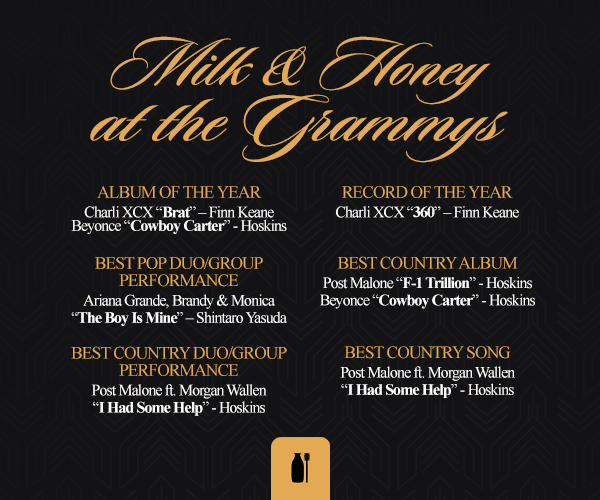TikTok’s announcement this week that it’s discontinuing its premium music streaming app sent shockwaves through the music industry.
As first reported by MBW, TikTok Music will close at the end of November in Indonesia, Brazil, Australia, Singapore, and Mexico — the five markets where the app is available.
TikTok says the strategy behind the decision is to focus its resources on the ‘Add To Music App’ feature, which lets TikTok users save songs they discover on the platform to playlists on streaming services like Spotify, Amazon Music, and Apple Music.
TikTok Music’s departure from Indonesia, Brazil, Australia, Singapore, and Mexico will likely be welcomed by rival streaming services operating in those countries.
But Spotify, in particular, is expected to benefit from TikTok Music’s exit. That’s according to a new research note from Deutsche Bank, which calls TikTok Music’s closure “a clear positive for Spotify.”
According to the note from Deutsche Bank research analysts, including Benjamin Black and others, the most “obvious implication” of the development is the potential for Spotify to snap up TikTok Music’s paying subscribers after the latter service shuts down.
Deutsche Bank’s analysts estimate that TikTok Music has accumulated between 2 million and 2.5 million subscribers across Brazil, Singapore, Australia, Indonesia, and Mexico.
And “assuming” those 2 million to 2.5 million “displaced subscribers” are absorbed by other streaming services, “according to the existing DSP market share across the five markets”, Deutsche Bank estimates that Spotify could see 1.3 million paid subscriber net additions in Q4.
The research note adds: “In addition, with one less DSP available, particularly one that attracts younger users, similar to Spotify, we think the promotional environment may ease to the benefit of Spotify margins across the 5 countries”.
There has been a lot of speculation over the past year about when and if TikTok Music might launch in the world’s largest recorded music streaming market, the United States, or other mature streaming markets like the UK or Germany.
Deutsche Bank argues that any concerns about TikTok Music’s potential expansion beyond those initial five countries with “aggressive pricing” that “could potentially disrupt the strong market share gains and pricing dynamics that Spotify has been enjoying” all “now seem to be off the table”.
The note adds: “For the labels, the takeaway is less clear cut. On the one hand, having more distributors is a clear benefit – it would increasingly shift the balance of power to IP ownership, which remains very consolidated. On the other hand, the labels have been strong advocates of price increases, and TikTok’s aggressive pricing strategy could have manifested itself as a reluctance across the other DSPs to raise pricing given the potential for market share losses.”
ByteDance‘s subscription-only music streaming app, formerly known as Resso, launched under the TikTok Music branding in Indonesia and Brazil in July last year and expanded into Australia, Singapore and Mexico in October.
Resso shut down its free tier in May last year, transforming into a premium-only service, prior to the launch of its successor, TikTok Music, without a free tier a few months later. (Resso ceased to operate in Indonesia and Brazil on September 5, 2023).
Deutsche Bank suggested in its research note on Wednesday, that while Resso “made significant inroads in driving meaningful MAU growth across its launch countries (Brazil, Indonesia, and India)” the “conversion from ad-supported users to paying subscribers was low”.
Back in September 2022, Sony Music Entertainment‘s entire recorded music catalog was pulled from Resso in all three territories in which the Bytedance platform was operating.
In October 2022, a month after Sony Music pulled its catalog from Resso, a report from the Wall Street Journal suggested that the major record companies were dissatisfied with the number of users of Resso’s free/ad-supported service who were being upsold into its Premium tier.
Deutsche Bank suggests in its research note that “Spotify was the primary beneficiary of the wind-down of Resso in 2023,” estimating that it accumulated over 110 million MAU net additions, “up from its typical cadence of ~60-80mn annual net additions”.
Interestingly, Deutsche Bank’s analysts also suggest that TikTok Music’s lack of a free tier contributed to its downfall.
“Without an ad-supported tier acting as a funnel for new users, TikTok Music failed to gain traction in many of its markets,” reads the research note.
Deutsche Bank cites Sensor Tower data showing that the service’s Global MAUs peaked in February 2024, just seven months after launch.
“In our view, TikTok Music appeals to a younger demo, which is more likely to utilize an ad-supported offering before trading up to a paid music offering,” the research note added.Music Business Worldwide





